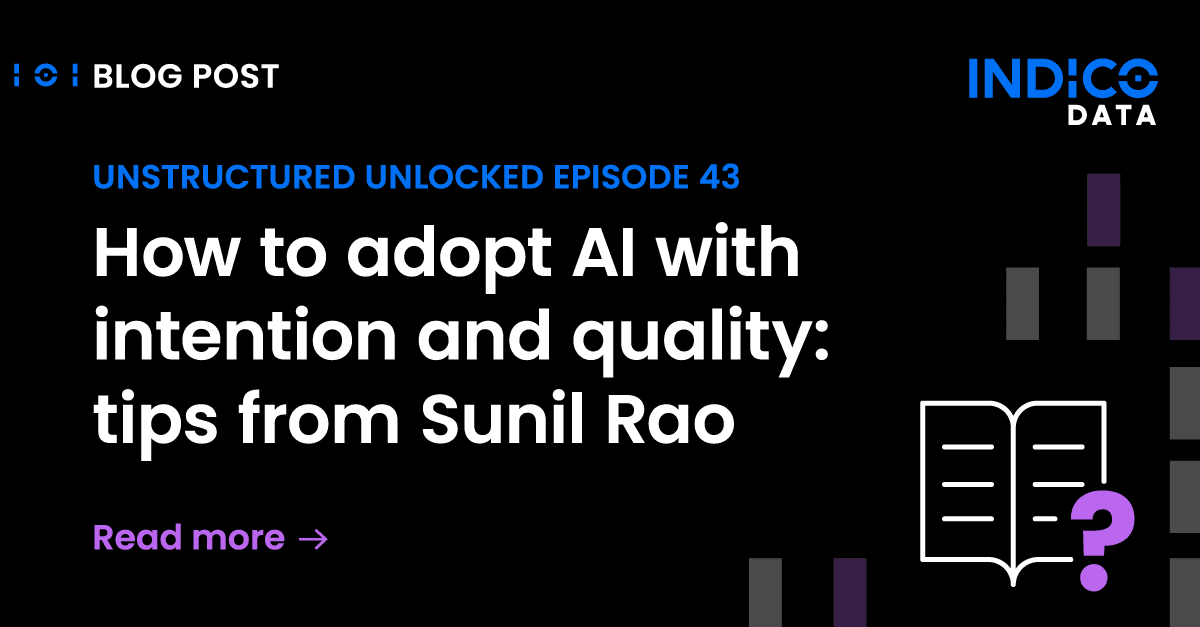In recent talks with customers about intelligent document processing a topic that’s been coming up frequently is model maintenance or, more accurately, model degradation. The issue is, a company creates a template to automate a given process, it works for a while, but changes come along and the model essentially breaks. So now the company has to go back, figure out what changed, and update the model accordingly. It’s time-consuming, frustrating, and no way to live.
Intelligent process automation (IPA) presents a better option: models that are smart enough to adapt to changes and new information on the fly, with no human intervention. Sound like pie in the sky? It’s more par for the course with IPA.
How templated process automation works
Let’s say you have a process that requires extracting various pieces of information from documents, for tasks such as invoice processing or financial document analysis. Using a templated approach requires you to know exactly where the text you’re after is located in each document and build a template that defines those locations.
That can work if each and every document is exactly the same, but as soon as you introduce any variation from what the template is designed to extract, you’ve got a problem. The automated process will either flag the undecipherable document for human interaction or, worse, proceed as if nothing’s wrong and deliver incorrect or incomplete information.
At that point, a human has to go into the automation tool, determine what the offending field(s) is, and adjust the template accordingly – a process known as model maintenance.
It should be noted that robotic process automation (RPA) faces a similar challenge. RPA is great at automating repetitive tasks that involve the same steps every time. But, like the templated approach, if you introduce any variation in the process, the RPA tool will balk. Here again, you’ll have to determine what caused the issue and either adjust the process accordingly or create a new automation routine to to handle the slightly different process.
Related Article: The Harsh Truth About Templated Approaches to Unstructured Content
Get smart with intelligent automation and deep learning
The reason we’ve been hearing about this issue is that it’s quite common. As you might expect, these sorts of processes are hardly static. New documents crop up and existing ones get changed. Maintenance becomes a full-time job and is at odds with the whole concept of automation.
Intelligent process automation, on the other hand, is based on deep learning technology that enables the model to recognize new information and correctly categorize it based on knowledge the IPA tool already has.
Without getting too deep into the data science behind it all (which is significant), the way it works is you start with a huge, generalized dataset that’s trained to understand language and context – meaning various forms, documents, emails, and so forth. By “huge” we mean millions of pieces of information, enough such that, with a limited amount of training on a specific task, the tool can understand the context of documents much like a human does.
To train an IPA tool to automate the processing of customer invoices, for example, you’d start with maybe 200 sample invoices. Someone who is intimately familiar with the process would then use the tool to label the relevant fields the tool needs to recognize, such as customer name, account number, product SKUs and the like – a process that takes only a few hours.
What’s important here is those 200 samples don’t have to all be identical, and in fact shouldn’t be. Rather, they should be representative of the many various invoices the company regularly deals with.
Once the model is trained to understand all those invoices, you can then introduce completely new ones to the process and the tool will be able to recognize those same relevant fields and extract the data you’re after, no matter where they show up on the new invoice. There’s no need for any human intervention – or model maintenance. That’s the power of deep learning, and a big benefit of intelligent automation tools.
Dramatic productivity gains with IPA
IPA is a technology that can deliver impressive gains, including up to an 85% reduction in process cycle times and 80% reduction in the resources required. To learn about more, download this white paper from process automation software experts at the Everest Group, “Unstructured Data Process Automation.”





